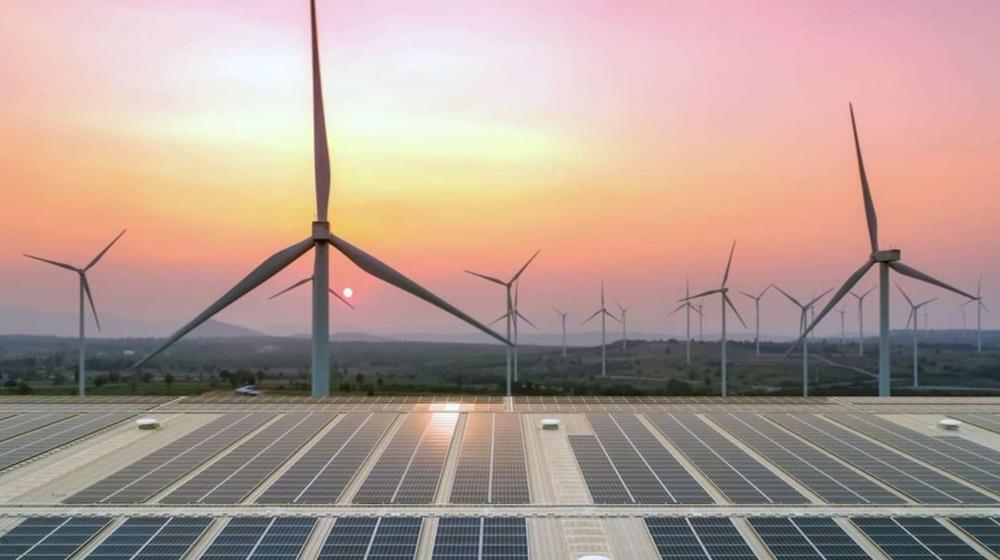Recent International Energy Agency (IEA) data has shown just how much money renewable electricity generation could be saving people across the European Union.
Consumers in the bloc will save an estimated €100 billion in 2021-23 as a result of newly installed wind and solar generation, the IEA has found.
Russia's invasion of Ukraine has had a major impact on EU energy supplies and prices, but renewables have helped counter this, according to a report published by the World Economic Forum. The average wholesale price of electricity would have been 8% higher in 2022 without new renewables projects, the IEA said.
The impact of the Russian invasion
There was an 80% drop in Russian supplies of natural gas by pipeline to the EU between 2021 and 2022, according to the IEA. Coupled with multi-year lows in hydro and nuclear power output in Europe, this led to soaring prices for natural gas and the type of coal used in power generation.
The average monthly price of natural gas increased tenfold between January 2021 and August 2022, while hard coal prices shifted five times higher. As a result, European electricity prices were up to 15-20 times higher than their average in 2015-20.
And these price increases would have been even more severe without the solar and wind capacity additions made in 2021-23.
"Average wholesale electricity prices would have been higher by about 3% in 2021, 8% in 2022 and 15% in 2023, raising the cost of electricity supply for the entire European Union by roughly €100 billion," the IEA says.
Work to do in the energy transition
The World Economic Forum and Accenture's Fostering Effective Energy Transition 2023 report highlights the progress that's been made in the energy transition, but also the work that still remains.
While there has been "broad progress on clean, sustainable energy", there are challenges around the equity of this transition, the Forum says. These include price shocks as a result of macroeconomic and geopolitical developments in recent years, with low-income countries hit hardest, due to fuel price increases, food inflation and rising debt burdens, says the report.
Investment will be key, and policies and partnerships can help manage this transition, the report notes. These include measures such as the European Union’s Carbon Border Adjustment Mechanism and the United States' Inflation Reduction Act, which are helping to boost technological development and clean energy supply.
"Significant strides have undeniably been made in the energy transition," say the Forum's Head of the Centre for Energy and Materials, Roberto Bocca, and Muqsit Ashraf of Accenture. "It is time for public- and private-sector players to accelerate, increase innovative collaborations and take additional steps forward to foster equity and resilience."
(Source: weforum.org)









